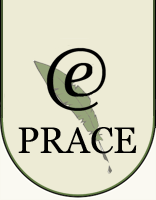
Place of Christianity among the professed religions
There are three predominant forms of religious practice in Ghana today: Christianity, Islam and local beliefs. Faith in Jesus Christ and Allah came to the republic brought by their followers conquering and inhabiting a new land(Muslim traders with their Islam from the north and European colonialists exercising Christian faith in the south), whereas indigenous religions have always existed in the country having its followers all over Ghana whereas the last one (King 1986:7).
According to a recent population census, 61 percent of Ghanaian profess faith in Jesus Christ, which makes this religion dominant in the country. The majority of its followers occupy the southern and central parts of Ghana, areas where first Portuguese missionaries and then the British extended their colonial power (Dankwa 1990:79).
As a result of this missionary activity, numerous Christian religious faiths were established, such as Evangelical Presbyterian Church which commands the majority of the Ewe tribe in the Volta Region, Presbyterian religion professed among the Akwapim, and the Methodist Church among the Fante society. The Roman Catholic Church commands followers throughout the country.
As for indigenous religions, they include a system of practices and beliefs fundamental for both interpersonal interactions and understanding of origins and development of the physical and spiritual conditions. Religion gives an insight into the mystery of good and ill-fortune and offers a means to comprehend what is unknown due to the belief in preternatural forces summoned by witches and ancestors (Ray 1970:10).
Although the beliefs and practice of traditional religion differ depending on the group exercising them and there are as many indigenous religions as there are ethnic groups in Ghana, there are some basic aspects that remain the same for all of them. These involve the belief in a hierarchy of spiritual individuals which control the human world and destiny. First in this hierarchy there is the Supreme God responsible for creation, seen as too mighty and too distant to be directly worshiped in daily religious life. The Supreme God is followed by lesser gods, ancestors, witches, diviners, and other spiritual powers having either life-enhancing or life-damaging powers (ibid 1970:12).
As far as the record of ritual, doctrines and practices is concerned, it does not exist in written form but functions as oral stories such as myths, proverbs, folk stories and songs performed by followers of indigenous religions to invoke gods’ help and protection(Ray 1970:12-13).
Indigenous beliefs and practices, though still the core of Ghanaian ritual and cultural life have become less popular due to the arrival and spread of another religion, Christianity.
Today Ghana boasts of the biggest number of followers of Christianity in West Africa. Both Protestant and Catholic churches can be found everywhere in the country with the highest density in the coastal and central parts of the country (Dankwa 1990:80).
The remaining part of Ghana, the northern territories, belongs to followers of local religions, but also Islam, which despite its longer history in Ghana than Christianity, does not attract as many followers as Christianity.
komentarze
Copyright © 2008-2010 EPrace oraz autorzy prac.